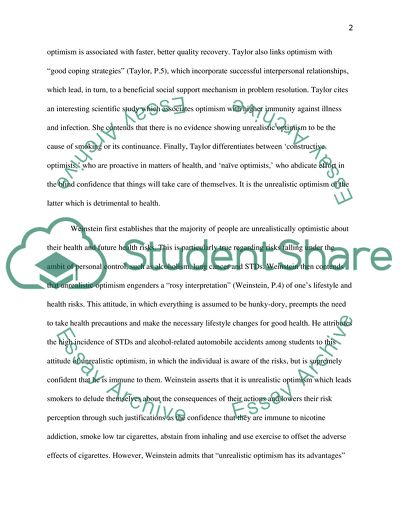Cite this document
(Unrealistic Optimism: Good or Bad Essay Example | Topics and Well Written Essays - 1250 words, n.d.)
Unrealistic Optimism: Good or Bad Essay Example | Topics and Well Written Essays - 1250 words. https://studentshare.org/psychology/1713648-unrealistic-optimism-is-good-for-an-individual
Unrealistic Optimism: Good or Bad Essay Example | Topics and Well Written Essays - 1250 words. https://studentshare.org/psychology/1713648-unrealistic-optimism-is-good-for-an-individual
(Unrealistic Optimism: Good or Bad Essay Example | Topics and Well Written Essays - 1250 Words)
Unrealistic Optimism: Good or Bad Essay Example | Topics and Well Written Essays - 1250 Words. https://studentshare.org/psychology/1713648-unrealistic-optimism-is-good-for-an-individual.
Unrealistic Optimism: Good or Bad Essay Example | Topics and Well Written Essays - 1250 Words. https://studentshare.org/psychology/1713648-unrealistic-optimism-is-good-for-an-individual.
“Unrealistic Optimism: Good or Bad Essay Example | Topics and Well Written Essays - 1250 Words”. https://studentshare.org/psychology/1713648-unrealistic-optimism-is-good-for-an-individual.


